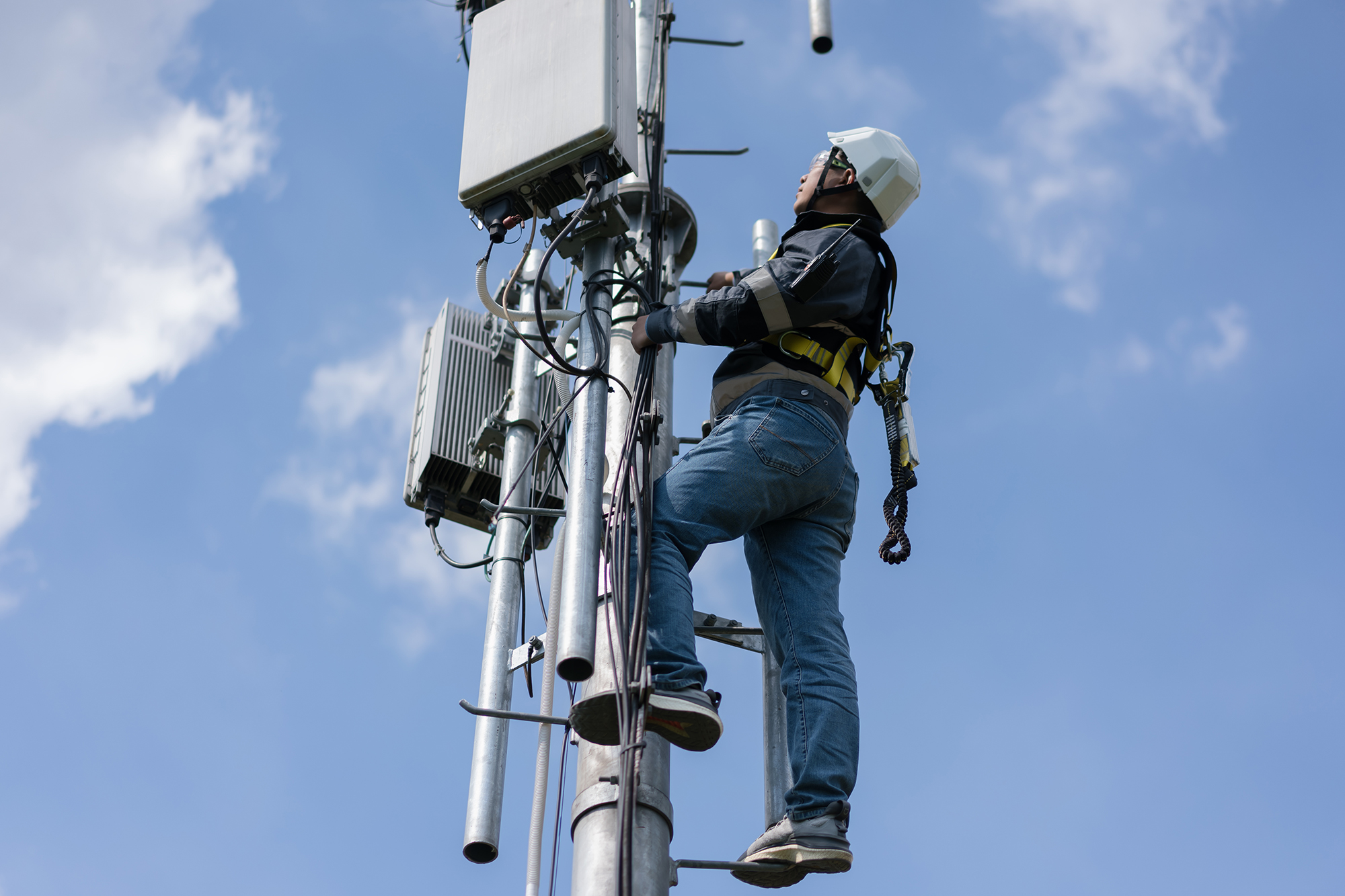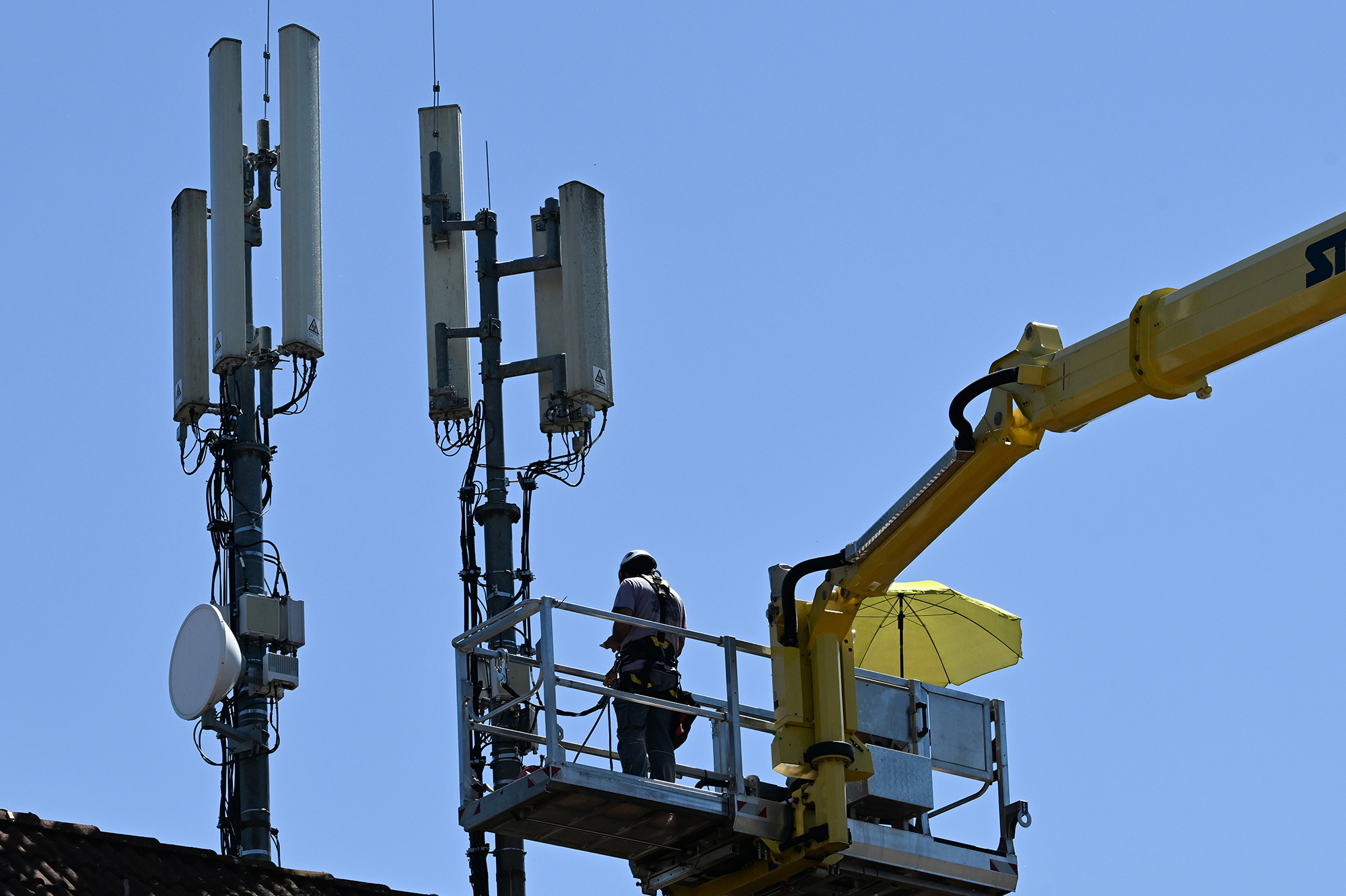Staying connected: How mobile operators and the Ministry of Digital Development are preparing for blackouts.
What will happen to mobile communication and the internet during potential prolonged power outages caused by Russian shelling, what mobile operators are saying, and how all this will affect mobile communication tariffs, – in a review by financial editor RBC-Ukraine Ruslan Kislyak.
Will Ukrainians have mobile communication and internet during potential prolonged power outages due to Russian shelling? To prevent a catastrophe, various entities including the government, mobile operators, and energy companies are working together.
Despite seemingly unrealistic demands from the state regulator on market operators, there appears to be a common understanding. At stake – the safety of Ukrainian citizens.
What the government demands from mobile operators
On July 15, the state National Center for Operational and Technical Management of Telecommunications Networks (NCTU) significantly tightened its requirements for the operation of mobile operators' base stations during martial law. In particular, mobile operators were mandated to ensure autonomous operation of base stations for 10 consecutive hours. By October 1, at least 60% of base stations in each region of Ukraine were expected to meet this standard; by November, 70%; by December, 80%. And by the end of January 2025, 100% of base stations must operate under the new standard.
Additionally, by December, at least a quarter of mobile communication base stations in each region must be connected to generators or batteries to ensure uninterrupted operation for at least 72 hours, or three days.
By the same deadline, at least 70% of the special equipment of mobile operators that ensures the operability of 95% of the backbone communication networks connecting regional centers of Ukraine must also be connected to generators or batteries for three days of operation.
Furthermore, by this time, similar conditions for autonomous operation must be ensured for 100% of local radio access networks in public places.
What mobile operators are saying
Last summer, shortly after the NCTU's directive was issued, the trio of mobile operators in Ukraine – Kyivstar, Vodafone Ukraine, and lifecell – voiced a common position regarding the regulator's demands.
To meet these requirements, the supply of electricity during the time needed to fully charge backup power equipment is crucial. This necessitates obtaining permissions from electricity suppliers (regional energy companies) to increase the electric current supply to base stations, as increasing the number of batteries creates a double load on the energy system. According to rough estimates, to ensure charging of batteries that will power mobile operators' base stations for 10 hours in case of power outages, approximately 2.8 GWh of electricity per day will be required. This essentially requires the capacity of one nuclear power unit.
Moreover, it's important to consider other factors affecting the fulfillment of NCTU's requirements, particularly the shortage of personnel among operators and contractors sufficient to service backup equipment. According to operators' rough calculations, the demand for additional hiring of specialists amounts to tens of thousands of workers.

Photo: Getty Images
A separate issue is the impossibility of installing and servicing generators on rooftops of buildings that house most base stations (especially in large cities with significant population density), as this is prohibited by construction and sanitary regulations.
The Ukrainian market lacks the necessary number of batteries and stationary generators. Thus, equipment is being procured from abroad, in conditions of complicated logistics and long delivery times.
Another problem is the insufficient speed and balance of legislative procedures for amending lease agreements for state and municipal property to expand the space occupied by additional cabinets with batteries. Expanding leased space on state or municipal property requires participation in auction procedures on Prozorro and takes an average of six months.
This was the situation in the summer. What has changed as of October?
How Kyivstar, Vodafone, and lifecell are doing
It is already evident that operators have not succeeded in meeting the regulator's requirement to ensure autonomous operation of 60% of base stations for 10 consecutive hours by October.
Kyivstar
As of September, 126,000 new batteries have been installed at Kyivstar's base stations, allowing them to operate for up to 4 hours without external power. Additionally, 2,322 generators support the operation of key network facilities in cases of power outages.
"All critically important facilities are equipped with generators to maintain communication for at least three days during full-scale blackouts," – the company assures.
By the end of the year, the operator plans to purchase over 61,000 batteries for base stations and 848 industrial generators. The company's goal is to ensure that 23-25% of the network can operate on generators this fall.
Currently, 60% of Kyivstar's network has four hours of backup power, while 40% has between 2 to 4 hours. The company is working on ensuring 6-hour backup capability.
The operation of the "Home Internet" service is supported by 51,000 uninterruptible power supplies installed in 23,000 apartment buildings.
However, any battery requires time to recharge, specifically between 4 to 6 hours depending on the number of installed batteries for maximum charging. Charging the uninterruptible power supplies requires 8 hours of uninterrupted operation.
"Unfortunately, power outages can be unpredictable both in terms of the number of outages per day and their duration. Therefore, batteries do not have enough time to recharge. With such outage schedules, electronic communication operators and fixed internet providers cannot always ensure uninterrupted network operation despite all their efforts," – the company explains.
In cases where power outages are extensive and prolonged, the company is forced to prioritize power supply to base stations.
The company urges Ukrainians to use communication services judiciously during blackouts. It is important for users to refrain from using heavy content (watching videos, video calls) over mobile internet during power outages. This allows the batteries at base stations to last longer. If there is no electricity in a settlement, it is better to communicate via calls, SMS, and text messages in messengers.
The company also reminds users about the "National Roaming" service. In case the signal of the mobile network operator disappears, the subscriber can attempt to use another operator's network without additional charge and without changing their number. To do this, the mobile phone settings must be set to automatic network selection, and if the smartphone does not register in other operators' networks, the user should manually select another available mobile network.
Vodafone Ukraine
Since 2022, the company has already installed over 51,000 batteries specially adapted for harsh operating conditions during frequent and prolonged outages. They provide 4-6 hours of autonomy. Additionally, around 54,000 modern batteries have been contracted, are in the process of delivery or installation.

Photo: Getty Images
"The company is purchasing additional stationary and mobile generators and even utilizing alternative energy sources. Despite active military operations, the company has built and commissioned three solar power stations," – the company reported to RBC-Ukraine.
Mobile base stations are also used for rapid deployment and ensuring communication in emergency situations.
lifecell
Currently, 65% of the company's network is powered autonomously (batteries and generators), allowing it to maintain stability for 4-6 hours in the absence of electricity. 100% of the backbone network is ready for power outages: the core and main nodes are ensured to operate for at least 72 hours.
Network modernization includes several key aspects. First and foremost, it is necessary to increase the power inputs for base stations so that battery packs can charge during short periods of electricity availability. Specifically, the modernization process involves increasing the power supply at each base station (of which the company has over 10,000 throughout Ukraine), which requires the installation of new circuit breakers, power lines, and sometimes transformer substations.
"Among the important organizational tasks that still need to be addressed is coordinating with government bodies to simplify the modernization procedures for power lines to accelerate the pace, as the current speed